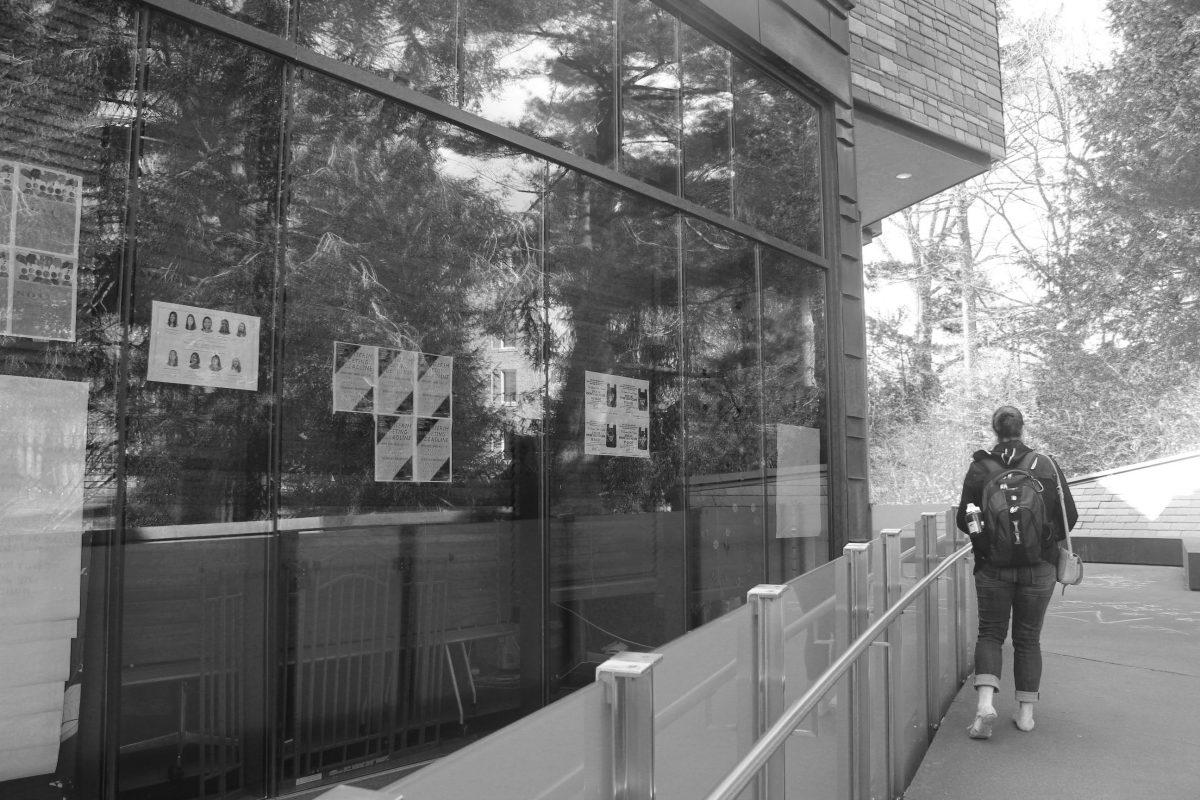Three hours before the ballot for College Government (CG) elections closed, candidate for Student Bursar Rose Whitlock ’18 sent an email to the student body withdrawing her candidacy. She cited financial concerns as the reason she could not longer take the position of student bursar if elected. As a bookkeeper, she was compensated for her work and assumed the Student Bursar – a position with more responsibility and a direct connection to students – would be paid as well. Whitlock’s withdrawal of her candidacy quickly raised concerns amongst the student body of the affordability of leadership positions at Wellesley, a concern that students have raised in the past.
The current Student Bursar, Isabelle van de Walle ’17, made an effort to try and solve this problem. She reached out to the administration with a proposal to get the Student Bursar position paid but the proposal was denied by the administration. Whitlock heard back from van de Walle that the proposal had been rejected the day of elections, and she felt she had to withdraw given that other options were not viable for her.
CG officers at Wellesley are unpaid positions despite the number of hours each student commits to their position every week, which can be upwards of 10 hours per week, depending on the position. Whitlock’s case was a more visible instance in which a student, constrained by their need for paid positions, was unable to take the same opportunities that students without these constraints are able to take.
Interim Dean of Students Adele Wolfson, the lead administrator in the effort to secure RAs and HPs compensation, noted what makes CG different from other leadership positions on campus.
“I believe firmly in ensuring that leadership positions are available to all students, regardless of financial means, which is why we worked so hard to get RA positions paid. However, CG leadership positions are different from RA positions in that CG officers are elected by the students, not hired by the college,” Wolfson said.
She added, “[The] decision to pay rests with the students, not administration, and will require discussion of the reasons they have not been paid to this point and the mechanisms that might be used to do so in the future. The student body needs to take time to consider this, not rush into ad hoc solutions.”
Adeline Lee ’16, CG President, noted that while there are not any current efforts to secure CG compensation, the current and previous student bursars have researched this issue. She said that being an officer on CG is an incredible time commitment, and definitely puts a restraint on those who must also work.
“This sort of schedule, though critically valuable for serving the student body and campus, is not friendly to nor is it sustainable for students who hold jobs on or off campus. It’s also certainly not friendly to or sustainable for those who don’t have the same degree of financial ability to engage with CG in that same way, despite having the experience, vision, and care to do so. And so, as so many realize, condoning these socioeconomic barriers to leadership–perhaps even more particularly within the context of CG–sets some really problematic precedents for what the culture of advocacy or change will necessarily look like on Wellesley’s campus. Consistently having an underrepresentation of experiences—in any sense, not just socioeconomic, but also in race, gender, or culture—necessarily also changes the way important issues that affect students in a large, intersectional way are confronted or approached,” Lee said.
Beyond CG, RAs and HPs will only begin to compensation this coming year, and chief officers and leadership positions of other clubs and organizations do not receive any sort of stipend, even for those on work study. This comes as a contrast to several other colleges, where often those with a demonstrated need—as in students with federal work study—will receive compensation for their time, especially the chief staff of media organizations.
Linda Zhou ’18 said in her role as a director for a community service organization—Chinatown Afterschool Program—she receives work study compensation, even though she is technically a volunteer.
“[Compensation] means those who are on federal work study (FWS) can dedicate their time to volunteer and do community service without having to worry about another job,” she said.
Zhou added that in her experience, volunteer positions are some of the only leadership opportunities that she has found that pays via FWS—or pay at all.
Whitlock said that following her email, she had a number of students reach out to her expressing their frustration with the lack of compensation for students at Wellesley in leadership positions, and how that has negatively affected their Wellesley experience.
“I would say there have been a lot of people in a similar position as me,” Whitlock added.
In an email following the elections, Dean Wolfson said that CG positions must remain unpaid so that they are not employees of the College. In order to pay them via the College, there would be an additional interview process following elections. Compensation via work study would also make them employees of the college.
“If the administration were to sway student’s decisions in any sort of way because they’re employees of the college, that’s on the administration,” Zhou said.
Photo by Khalida Chin’16, Contributing Photographer






